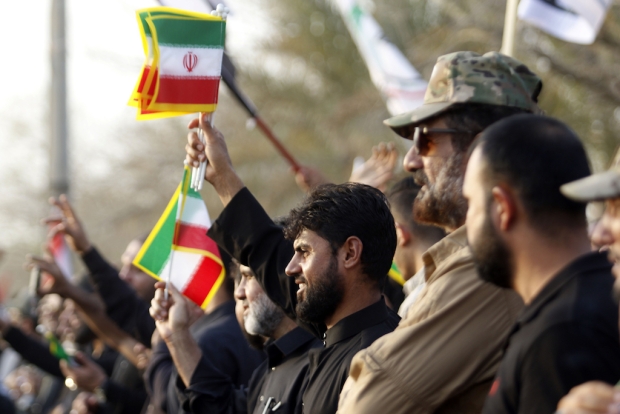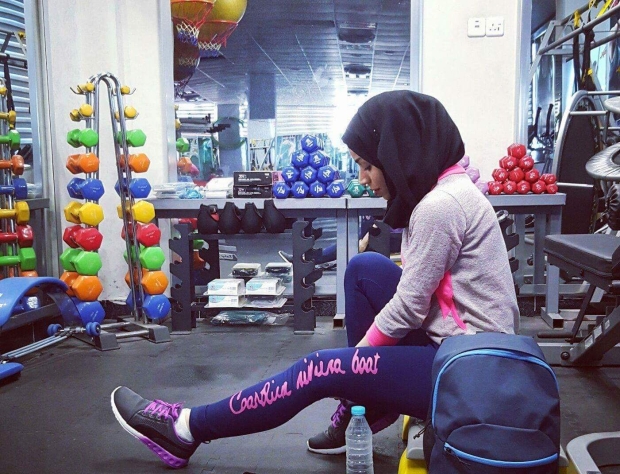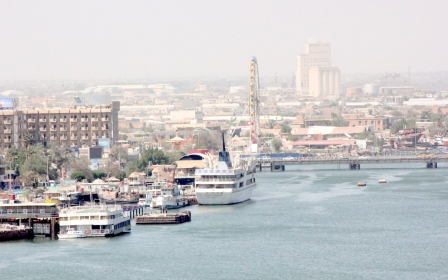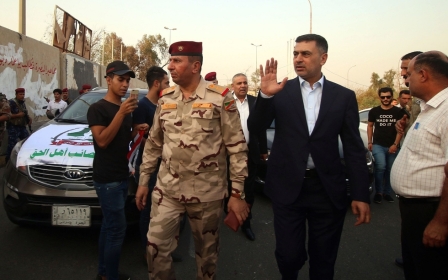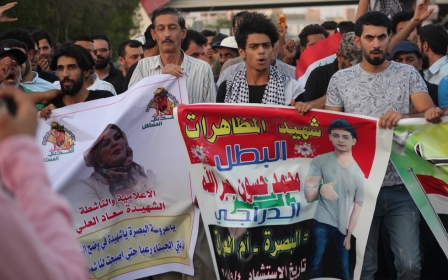'Saboteurs': Non-state actors accused of killing and abusing Basra activists
BASRA, Iraq - Since major protests erupted in Basra last July against corruption and a lack of services, demonstrators have claimed that shadowy sub-state elements within the security forces have carried out targeted killings, kidnappings, threats and torture.
Reports of these elements, apparently affiliated to powerful political parties and militias, have struck fear into Basra's populace as it demands a better basic quality of life.
Now, a report by Iraq's Joint Operations Command released this week would appear to vindicate some of the claims made by the protesters. According to the report, actors with "partisan influences" had succeeded in infiltrating the security forces.
The report, which focuses on two days of violence in Basra that began on 2 September and saw the destruction of the Iranian consulate and political parties' buildings, said that the nine protesters confirmed as killed during the unrest were targeted for "political reasons" by "saboteurs" loyal to political parties.
They hit me on the head and the blood was just everywhere
- Mahdi Salah, protester
The news appears to confirm allegations made by activists, who have said they now exist in a state of fear over possible repression by Iran-backed groups in Basra.
One demonstrator, speaking to Middle East Eye, detailed his experience of being arrested, beaten and subjected to sectarian questioning under the direction of a man he believed to be an operative of a political party.
Mahdi Salah, a student at the Basra Technical College, explained how after being arrested with around 32 other people in August he was taken to a building belonging to the South Oil Company. During the journey to the building, around a kilometre away from the protest location, he was continuously beaten by police.
"They hit me on the head, and the blood was just everywhere," he said.
In the building, they were taken one by one to be interrogated. His interrogation was led by a man wearing a traditional dishdashah rather than a police uniform.
"I believe that he was a supporter of the one of the political parties in Basra," said Salah.
"His language was not formal like the policemen. He was saying to the other guy on the phone 'haji' and 'sayyid,' and these are nicknames used only by the parties."
"When I told him, he screamed at me 'What more do you want from this country?!'"
He then asked Salah whether he was Sunni or Shia, to which he replied: "I am a Muslim."
"Then he ordered one of his guys to start kicking me hard. After that I said 'I'm Shia'," said Salah.
He probed Salah with questions relating to the tenets of Shia Islam, which Salah answered sarcastically. The interrogator ordered his men to make Salah "polite," which they interpreted by kicking him in the head and neck.
The interrogator retrieved Salah's phone and began looking through his photos. He said that after seeing a video of Salah demonstrating outside the offices of the Badr Organisation - a powerful Iran-backed party and militia - and chanting against its leader, Hadi al-Ameri, the interrogator "went crazy".
"You are not a polite guy, and you went to demonstrate against al-haji," said the interrogator, using the honorific title of someone who has travelled to Mecca for the Hajj pilgrimage.
He then ordered his men to beat Salah again.
Salah was held for three days in total, and subjected to abuse including being hung by the arms from the ceiling and hit with a cable on his feet and back. He was told not to return to protesting or face being killed.
Salah initially kept quiet about the presence of the man in the dishdashah, but told MEE that he was talking about it now as he was "not afraid any more".
'Reign of fear'
Since the 2003 US-led invasion that overthrew the government of Saddam Hussein, numerous Iran-backed armed groups have held enormous sway in Iraq, often being seen as more powerful than the government.
A number of these groups have gone so far as to threaten to overthrow the elected governments of the country and imposed policies in line with those of the Islamic Republic.
However, they are also seen in a positive light across much of the country for their involvement in fighting the Islamic State (IS) group as part of the Hashd al-Shaabi, a collection of militias. The Fatah coalition, which is led by Ameri and is the Hashd's political face, won the second-largest number of seats in the May 2018 elections.
In Basra province, which borders Iran and bears the scars of the brutal 1980-88 war between the two countries, the militias' power is enormous and activists have warned of a "reign of fear" being imposed by the groups.
An official in the interior ministry’s intelligence service told the Associated Press (AP) news agency that a number of protesters were probably being held by political parties and their militias, but that he was not able to track them as a result.
Asaad al-Eidani, the governor of Basra, denied that there was any abuse of detainees.
"About 26 people were seized, 13 were innocent and 13 confessed to burning the governmental buildings," he told MEE, referring to the events of 2 September.
"No one is torturing them."
However, Mahdi al-Tamimi, Basra chief for the government-funded Iraq High Commission For Human Rights, said his organisation had evidence of abuse being carried out in police custody.
"You can see that there are people who were abused and some of them tortured. Some of them lost their eyes and legs," he told MEE.
Belkis Wille, senior Iraq researcher for Human Rights Watch, told MEE that torture was "pervasive" across the justice system in Iraq.
'We might get killed as well'
Since July, a wave of killings in Basra has made protesters wary of walking the streets. Commentators have suggested the attacks could be "payback" for the burning of the political parties' buildings and the Iranian consulate.
The leader of one local militia, speaking on condition of anonymity, told the AP they had "pictures of those who burned down our headquarters, and they will pay dearly".
The killing of lawyer Jabbar Mohammed Karam al-Bahadli on 23 July and activist Suad al-Ali on 25 September shocked many in Basra who thought that the violence of the '00s, when sectarian militias would shoot each other dead in the streets, was a thing of the past.
Haider Shaker, a medical student and activist, was also shot dead outside al-Sader hospital.
Reham Jacob, an activist and women's gym manager in Basra, told MEE that she had been receiving death threats over her support for the protests, citing a photo of her with US consul Timmy Davis.
"They used some old photos of me and the American consul and they added them to other photos of me in the protests, saying that I am a spy and traitor working for the USA to sabotage the peaceful protests," she said.
Jacob said the killings and threats had made her afraid of walking the streets. She noted, in particular, the targeting of women in Iraq, which has seen - in addition to Suad al-Ali - social media star Tara Fares and a number of beauticians shot dead in recent months, as well as the fleeing of former Miss Iraq after death threats.
As someone involved both in the protest movement and a job which sought to empower women, she feared being another target.
"Women are being targeted as you can see with the killing of Suad al-Ali," she said.
"We are expecting that we might get killed as well, but this won't stop us from asking for our rights and it won't stop us from living."
Although a new government is gradually forming in Iraq, led by relative independent Adel Abdul-Mahdi, few in Basra are optimistic that they will be able to resolve the province's long-term problems, particularly around corruption, electricity and tribal nepotism.
"They did not hear any of our demands till now. The situation is getting worse. The thing we can do is keep going till we get our rights and for sure there will be some losses in this way," Jacob said.
"It is known that if anyone wants to correct his life path he might face some losses, but this won't stop us and we will keep going without surrender."
Middle East Eye propose une couverture et une analyse indépendantes et incomparables du Moyen-Orient, de l’Afrique du Nord et d’autres régions du monde. Pour en savoir plus sur la reprise de ce contenu et les frais qui s’appliquent, veuillez remplir ce formulaire [en anglais]. Pour en savoir plus sur MEE, cliquez ici [en anglais].


